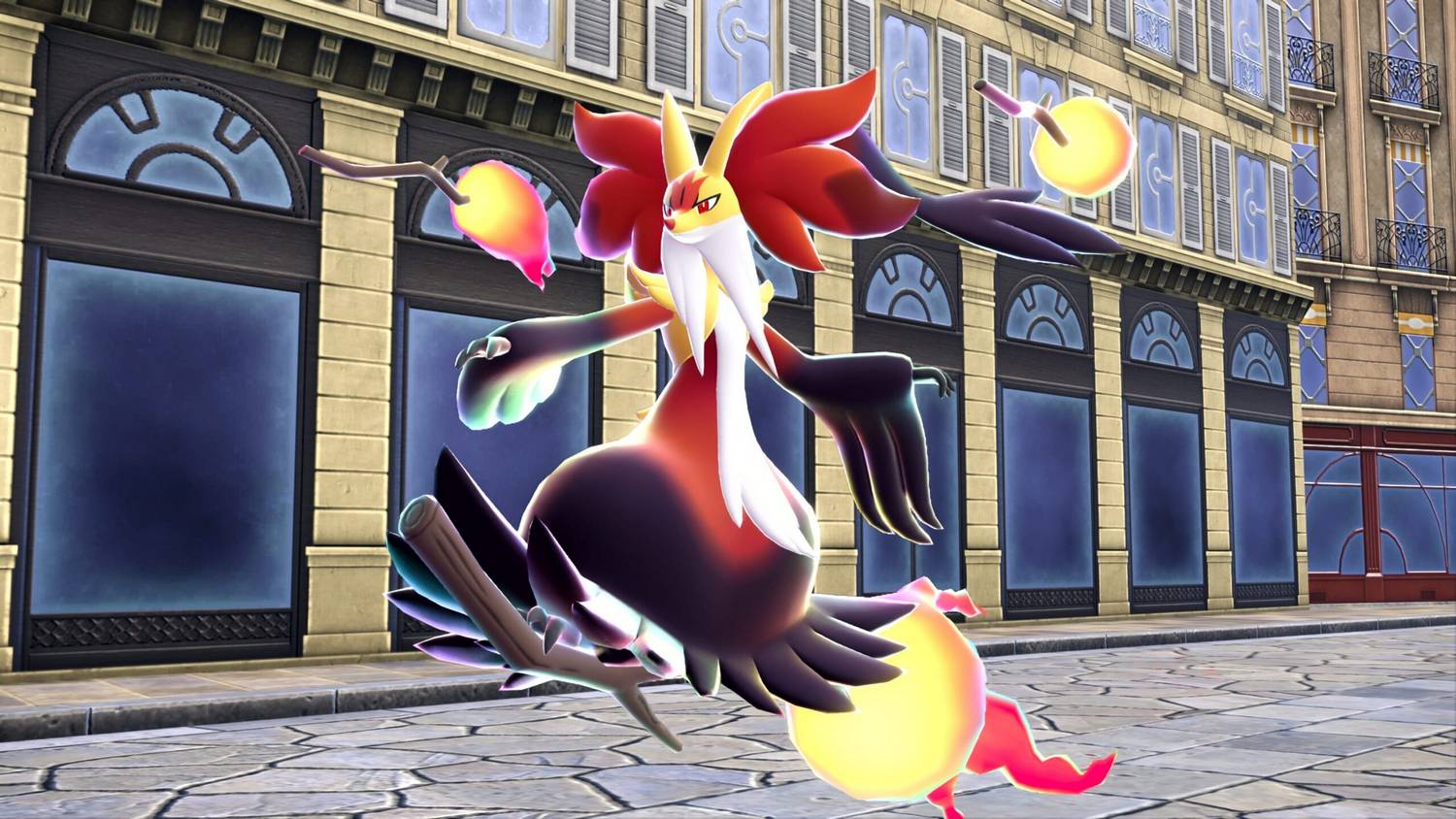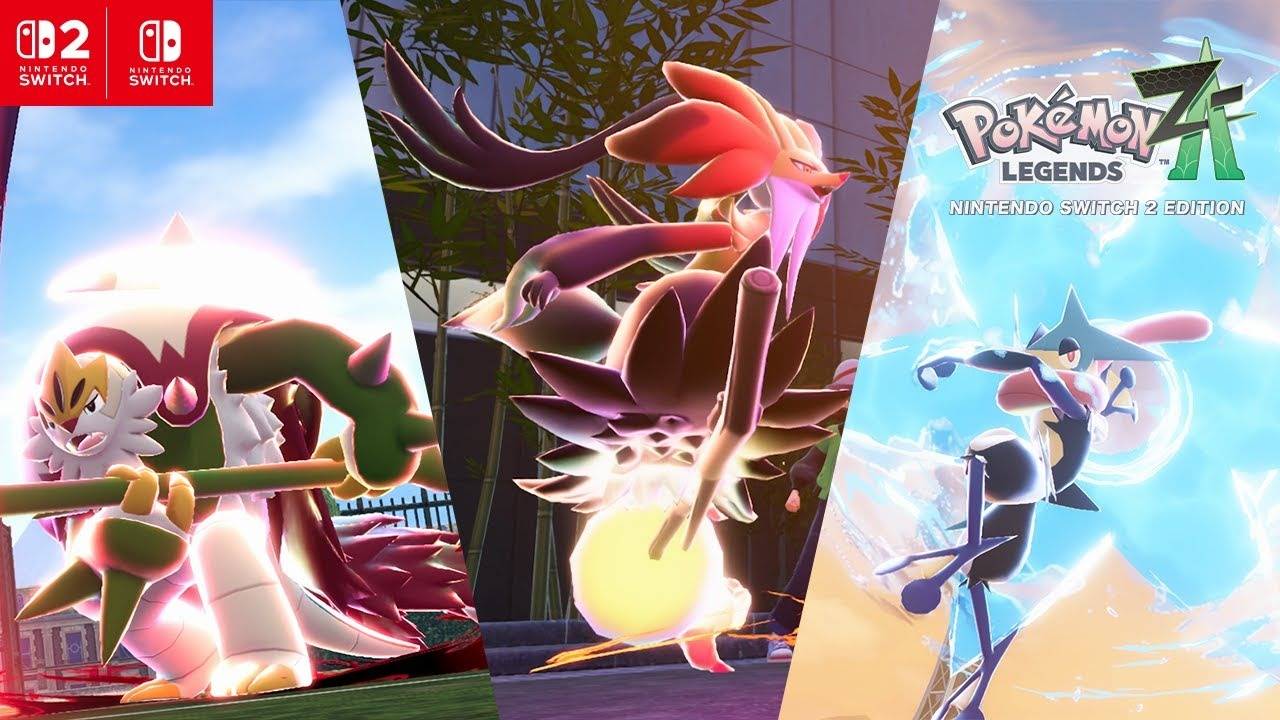A Controversial Comeback: Pokémon Legends: Z-A Locks New Mega Evolutions Behind Online Ranked Battles
Popular Now
 Auto X Drift Racing 3
Auto X Drift Racing 3
 Toca Boca World
Toca Boca World
 Schedule I
Schedule I
 The Legend of Zelda
The Legend of Zelda
 League of Legends
League of Legends
 Stumble Guys
Stumble Guys
 God of War Ragnarök
God of War Ragnarök
 Call of Duty
Call of Duty
 PUBG Mobile
PUBG Mobile
 Free Fire Max
Free Fire Max
 The announcement of Pokémon Legends: Z-A has been met with a mix of excitement and cautious optimism from the community. With the return of Mega Evolutions and a focus on the fan-favorite Kalos region, the game promises a fresh take on the franchise. However, a recent and highly controversial revelation has sent a shockwave through the fanbase, particularly among casual players and completionists. The Pokémon Company has confirmed that the brand-new Mega Evolutions for the Kalos starter Pokémon—Mega Greninja, Mega Delphox, and Mega Chesnaught—can only be obtained by participating in the game’s online Ranked Battle system, a decision that has sparked a heated debate about accessibility and a paid subscription.
The announcement of Pokémon Legends: Z-A has been met with a mix of excitement and cautious optimism from the community. With the return of Mega Evolutions and a focus on the fan-favorite Kalos region, the game promises a fresh take on the franchise. However, a recent and highly controversial revelation has sent a shockwave through the fanbase, particularly among casual players and completionists. The Pokémon Company has confirmed that the brand-new Mega Evolutions for the Kalos starter Pokémon—Mega Greninja, Mega Delphox, and Mega Chesnaught—can only be obtained by participating in the game’s online Ranked Battle system, a decision that has sparked a heated debate about accessibility and a paid subscription.
 The Pay-to-Win Wall: A Controversial Gating of Content
The Pay-to-Win Wall: A Controversial Gating of Content
In a detailed update on the official Pokémon Legends: Z-A website, it was revealed that the Mega Stones required to unlock these new forms—Greninjite, Delphoxite, and Chesnaughtite—are not found through normal gameplay. Instead, they are tied to the “Z-A Battle Club,” the game’s new online competitive PvP mode. Players must have a paid Nintendo Switch Online membership to even access the battles, and the Mega Stones are given out as “promotion rewards” for climbing the ranked ladder. This system is a significant departure from previous games where Mega Stones were found as in-game items, and it effectively locks a portion of the game’s content behind a paywall and mandatory competitive play.
The situation is further complicated by the seasonal nature of the rewards. The Pokémon Company confirmed that the Mega Stones for each of the three starters will be released one by one in subsequent seasons. According to the announcement, Greninjite will be available in Season 1, followed by Delphoxite in Season 2, and finally Chesnaughtite in Season 3. This means that to collect all three of the new Mega Evolutions, players must not only have an active Nintendo Switch Online subscription but also engage in competitive battles over an extended period. For casual players who prefer the single-player experience of exploring Lumiose City and its new urban-planning mechanics, this is a major blow. It forces them to either trade for the Pokémon with another player or engage in a style of gameplay they may not enjoy just to complete their collection.
- A Paid Barrier: Access to the new Mega Evolutions requires a Nintendo Switch Online subscription, creating a paywall that was absent in previous games.
- Forced Competitive Play: The Mega Stones are obtained as rewards for ranking up in the new online Battle Club, requiring players to engage in a specific type of gameplay.
 A Return to Form? The Legacy of Past Content Locks
A Return to Form? The Legacy of Past Content Locks
While this decision has been met with widespread criticism, it’s not entirely without precedent. The Pokémon franchise has a history of gating special Pokémon behind live events, and more recently, giving out rewards for participating in competitive tournaments. For example, some Shiny versions of rare Pokémon were previously only distributed to players who participated in a limited number of online battles. However, tying the core mechanics of a new game to a specific competitive mode and a paid subscription is a new and controversial step for the series, especially when the Mega Evolutions of the original starters from the Kalos region are so highly anticipated.
This move is a clear attempt by The Pokémon Company to incentivize players to try the new online component of Pokémon Legends: Z-A. By making the Mega Evolutions for the fan-favorite starters so desirable, they are pushing players who might otherwise stick to single-player content into the competitive scene. While this may be good for the health of the game’s online community, it comes at the expense of player choice and accessibility. This decision is already being compared to the infamous controversies of other games that locked content behind paid, live-service models. For a franchise built on the promise of “Catch ’em All,” this move feels like a step backward, and it leaves many fans wondering if this is a sign of a new, more restrictive era for the Pokémon series.








